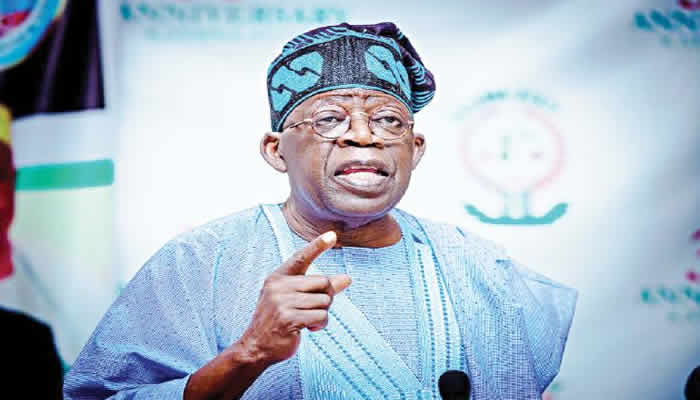In a recent book launch honoring former Nigerian military president Ibrahim Babangida, current President Bola Tinubu recounted a pivotal moment in his early political career, revealing a courageous confrontation with Babangida that showcased Tinubu’s unwavering commitment to democratic principles. The event, captured in a video shared by Channels TV, offered a glimpse into the complex political landscape of Nigeria during the early 1990s and highlighted the interplay between these two significant figures. Tinubu, then a newly elected senator representing Lagos West, challenged Babangida’s repeated postponement of the inauguration of elected officials following the 1992 elections. This bold act, Tinubu admitted, carried the risk of imprisonment, underscoring the authoritarian nature of Babangida’s regime.
The scene unfolded at the International Conference Centre in Abuja, where Babangida had summoned the elected officials. Sensing another postponement, Tinubu, described as possessing a “radical manner,” prepared himself for the disappointment. His premonition proved correct; the inauguration was indeed delayed. Adding insult to injury, the elected officials returned to their hotel to find it locked, effectively trapping them. It was during a subsequent gathering, at the invitation of Dele Cole, that Tinubu seized the opportunity to directly confront Babangida. He publicly questioned the former president’s motives, accusing him of squandering a historic opportunity to solidify democracy in Nigeria.
Tinubu’s courageous act reverberated through the hall. The palpable tension reflected the very real danger he faced in challenging the head of state. Many expected immediate repercussions, perhaps even imprisonment. However, in a surprising turn of events, Babangida, instead of retaliating, approached Tinubu, extending his hand in a gesture of respect, a moment forever etched in Tinubu’s memory. This unexpected response not only demonstrated Babangida’s ability to appreciate dissenting opinions but also underscored Tinubu’s emerging political prowess. The incident marked an early instance of Tinubu’s willingness to challenge authority and speak truth to power, characteristics that would define his political trajectory.
Beyond recounting this pivotal confrontation, Tinubu’s speech also acknowledged Babangida’s influence on his own political career. He credited Babangida’s “progressive revolution” and his emphasis on youth involvement in politics as inspiring factors. This acknowledgement added a layer of complexity to the narrative, portraying a relationship that transcended political differences. It suggested a degree of mentorship, perhaps even admiration, on Tinubu’s part, despite his earlier defiance. This duality revealed a nuanced understanding of Babangida’s legacy, recognizing both his positive contributions and the controversial aspects of his rule.
The book launch, therefore, became a platform not only for reflection on past events but also for reconciliation and mutual respect. While Tinubu openly challenged Babangida’s decisions in the past, he simultaneously acknowledged the former leader’s role in shaping his political journey. This blend of criticism and appreciation showcased a mature political perspective, highlighting Tinubu’s capacity to distinguish between personal experiences and broader political contexts. It also demonstrated Babangida’s grace in accepting criticism from someone he arguably inspired, fostering an environment of open dialogue despite past disagreements.
The event also provided a glimpse into Babangida’s perspective on his controversial decision to annul the June 12, 1993, election, widely considered a pivotal moment in Nigeria’s democratic history. Thirty-two years later, Babangida maintained that his actions were motivated by what he believed to be the best interests of the nation. This reiteration of his rationale, while not offering any new insights, served as a reminder of the enduring debate surrounding the annulment and its impact on Nigeria’s democratic development. The book launch, therefore, became a space for revisiting historical events, prompting reflection on the complexities of leadership and the long-lasting effects of political decisions. The juxtaposition of Tinubu’s personal anecdote and Babangida’s reiteration of his stance on the annulment created a multifaceted narrative, offering a deeper understanding of Nigeria’s intricate political landscape.
The book launch, therefore, transcended a simple celebration of a publication. It transformed into a platform for historical reflection, political dialogue, and personal reconciliation. The event underscored the complex relationship between two key figures in Nigerian politics, showcasing the intertwining of their political journeys and the enduring legacy of past decisions. The convergence of past and present, of challenge and respect, offered a unique glimpse into the dynamics of power and the evolution of democracy in Nigeria. The event served as a reminder that political narratives are rarely simple or straightforward, often encompassing a spectrum of perspectives and experiences.


